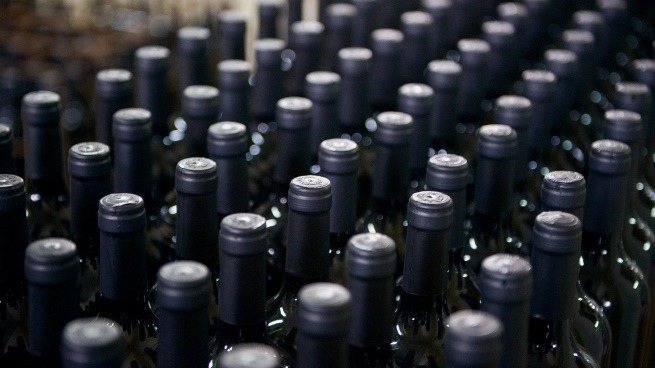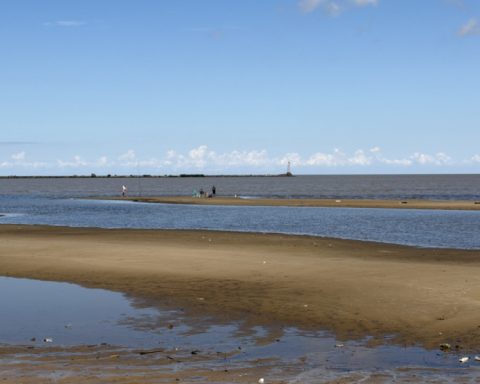Organic wine production has recorded significant growth in recent years in Argentina and with it the consumption of wines made in this way, in line with the global trend of choosing healthier products and in harmony with the environment.
“In recent years, there has been a significant growth in the number of organic producers and in the interest of wineries in carrying out more sustainable work and having among their wines, even if it is, a wine with organic certification,” said Francisco Barreiro, co-founder by VIOS | More Sustainable Wines.
More and more wineries are betting on more sustainable wines, both in all of their products and in specific lines and, according to the latest statistics, the internal consumption of organic wines registered a very significant growth in recent years.
According to the report “Situation of Organic Production in Argentina during 2021” of the National Service of Agrifood Health and Quality (Senasa), last year the organic area harvested in general rose 14% and reached 96,476 hectares in total, “sustaining the growth trend of the last 10 years”.
The region that most increased its harvested area was Cuyo, while the provinces that did the most were Salta, Jujuy and Mendoza.
The region that most increased its harvested area was Cuyo (61%), while the provinces that did the most were Salta, Jujuy and Mendoza, added the work of the agency.
Likewise, adds Senasa, “the sale of organic products has been increasing strongly in recent years at a global level, in line with the emergence of consumption associated with well-being and healthy living, an imprint that the pandemic has accelerated.”
“The planet requires more environmentally friendly consumption and production models”, assured the specialist in Environmental Sciences Juan Pino, co-creator of VIOS | More Sustainable Wines.
In this sense, the Oenology manager of Grupo Avinea Juan Pablo Murgia told Télam that “working organically is part of our philosophy, which goes further; the initial idea was to have a natural management, which would respect the agroecological system of each one of the places, the microflora, the microfauna, conserving the soil, avoiding the use of synthetic chemical products, herbicides, pesticides”.

For Murgia, “being organic is part of the sustainability program, which encompasses the social, economic, energy, resources and conservation of the places where we produce grapes, the vineyards; a philosophy of natural management in balance with the agroecological system “.
“Besides, a naturally managed vineyard also has a longer life, guarantees its longevity; obviously we have to wait a long time to see it, we live in a world of very short terms, but this is a long-term bet and the vineyards managed in this way are designed for the long term”, he concluded.
In tune, the agronomist Franco Bastías, from Domaine Bousquet, raised the need to “move towards more sustainable projects, stop looking at the short term and start thinking about the medium and long term; without losing sight of the economic point of view, sustainability not only environmental but also economic and social”.
“Facing a change of paradigms, going from a recipe production to a production of conscience where the efforts are in pursuit of practices that allow us to be sustainable in order to have a production 100 years from now and not damage the soil in such a way that then we can’t produce anything,” he complained.
In addition, Bastías asked “to stop thinking that there is a good agriculture and a bad one, but that there is a cultural change where things become more complex.”
The organic wine market and its international projection
In Argentina there are 250 organic wine producers; with Mendoza as the province with the largest area of certified organic vine crops (7,300 hectares) and with Malbec as the most planted variety.
Of the 79 wineries that produce organic wines, 69 export; In 2020, they sold abroad more than 10 million liters of certified organic wines, 24% (almost three million liters) more than in 2019.
The European Union (EU) continues to be the main destination with 64%, followed by the United Kingdom (14%), Switzerland (3%) and Japan (2%); Within the EU, Denmark and Sweden import more than 4.5 million litres.
While, total internal consumption of organic wines was 167,125 liters in 2020with a growth of over 5,000% compared to 2018 (2,970 litres).
Although it is still low (less than 2%), it has grown in recent years in line with the global trend of choosing products that are increasingly healthier and in harmony with the environment.
With the aim of achieving more production, a greater number of producers and jobs, at the beginning of last year the Ministry of Agriculture, Livestock and Fisheries launched the “Strategic Plan for the Argentine Organic Production Sector 2030”.


















